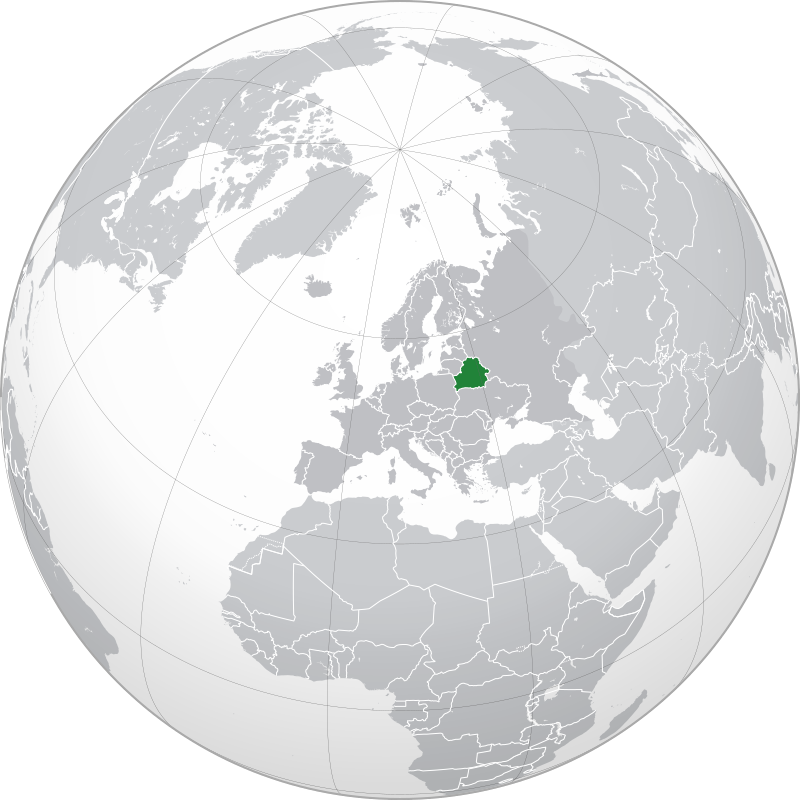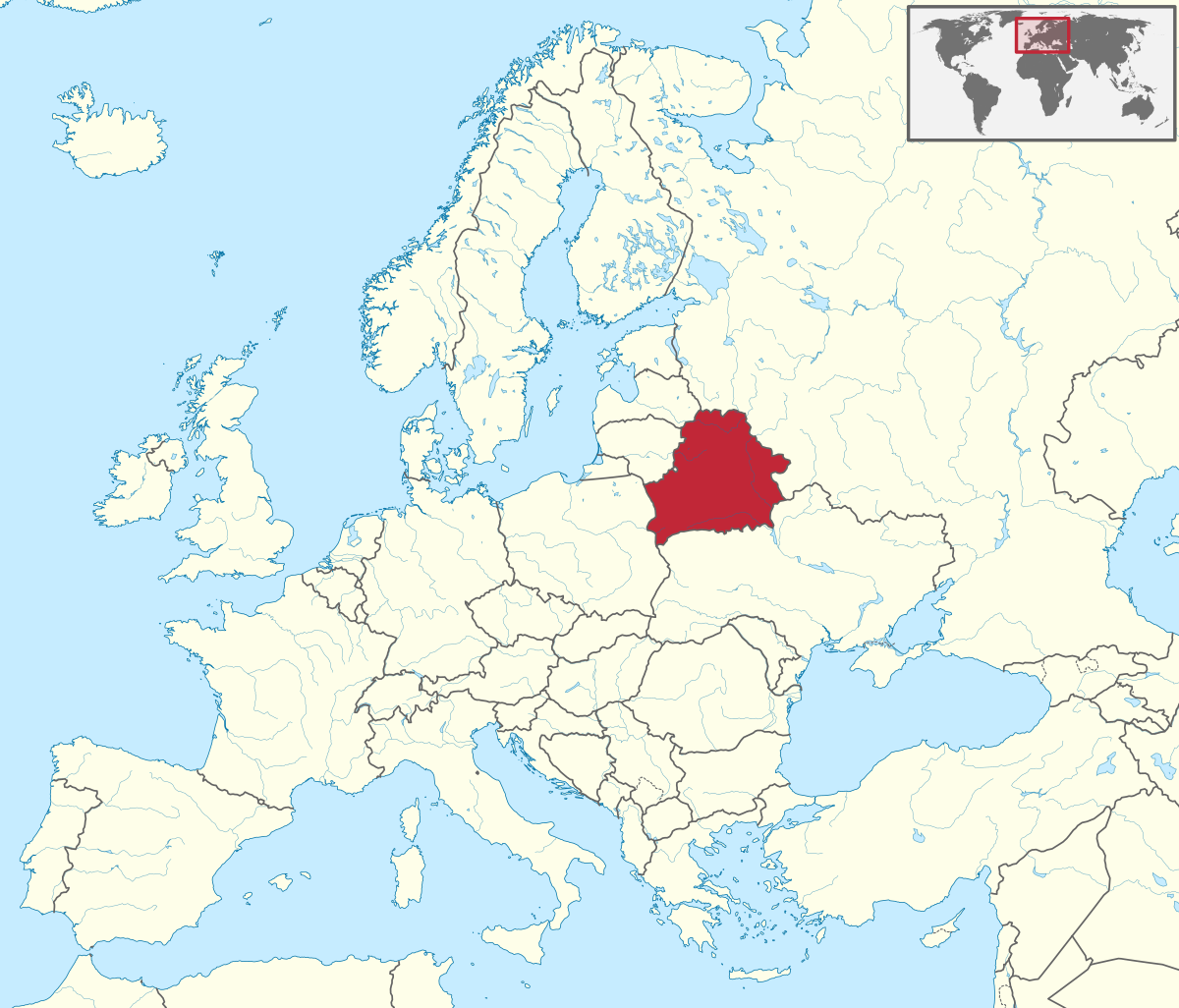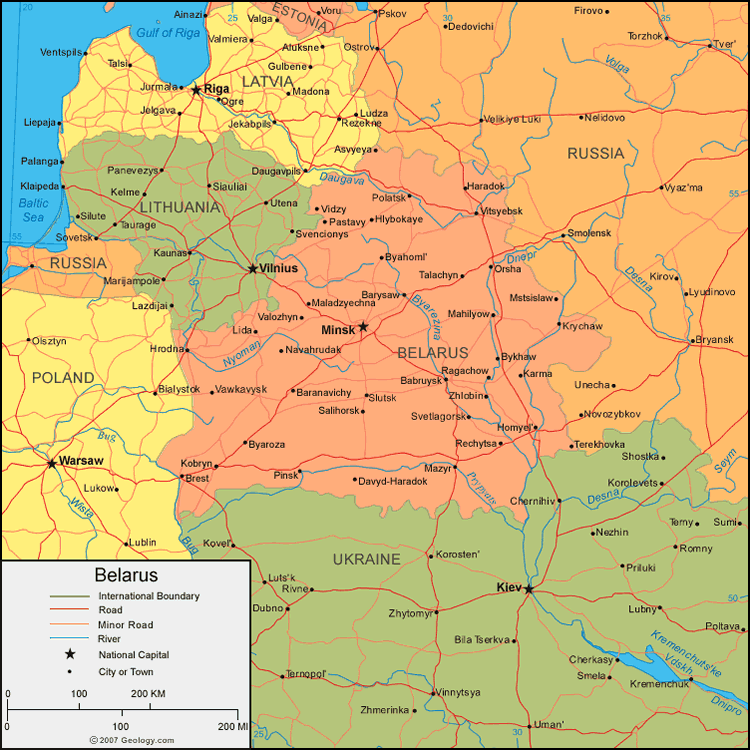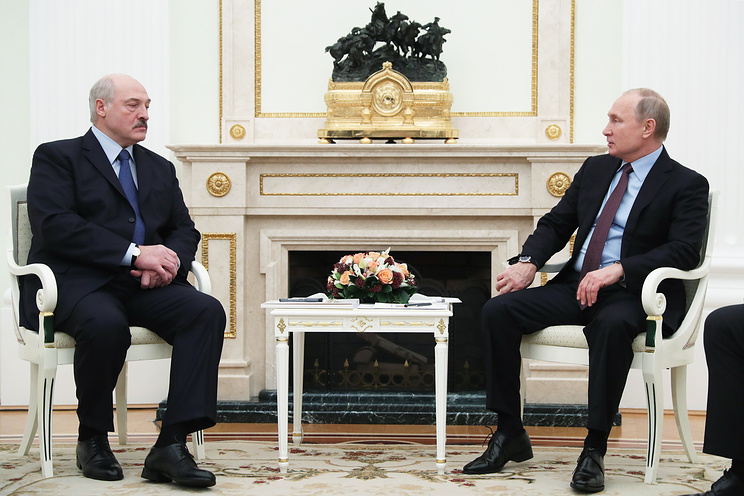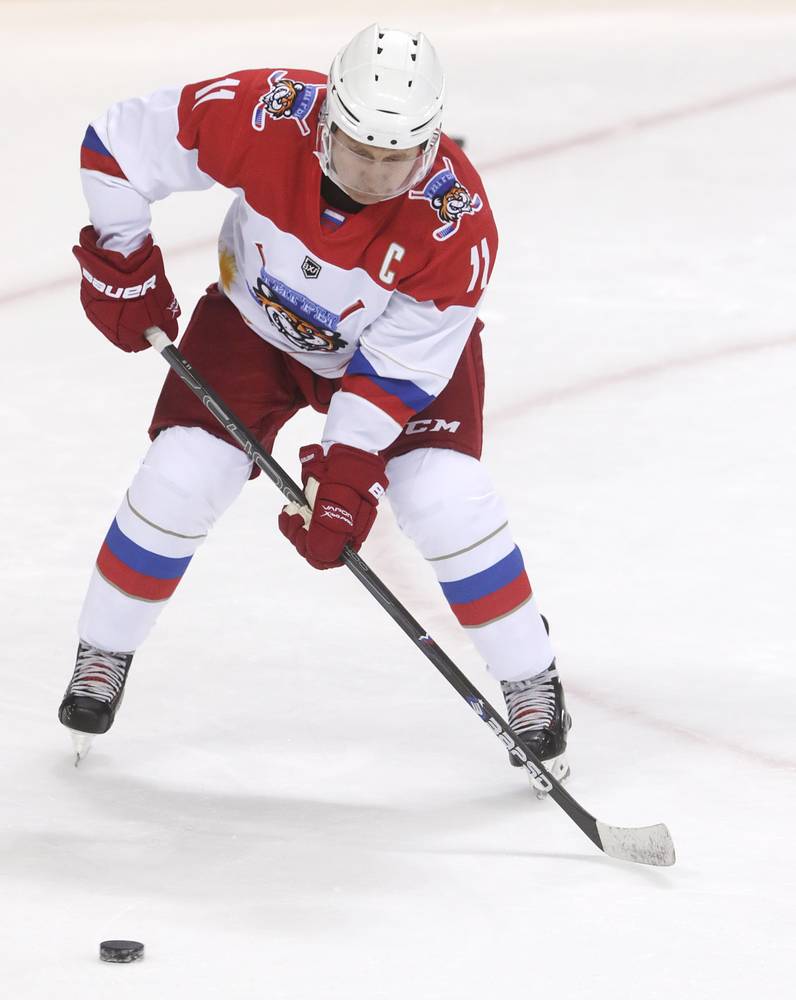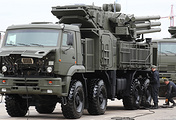angelburst29
The Living Force
Cross-Post from: Civil War in Ukraine: Western Empire vs Russia
thorbiorn said: Monday at 8:00 PM
Quote: There was an article on a Russian news site EurAsia Daily written by a person based in Tbilisi (Irakli Chkheidze (Tbilisi), specially for Colossal) who reports and reflects on an interview given by, still very active behind the scenes former General Secretary of Nato, Anders Fogh Rasmussen to a Polish Newspaper. The main point is that Belarus has been selected as a future target for NATO interference. Below is an excerpt of the rather long article. The translation of the machine is not exceptional, but hope you get a gist of the message.
12 Nov 2018 15:37
In the footsteps of Georgia and Ukraine: NATO in the fight against Russia chooses a new target
[...]
It seems that now the main target becomes the Republic of Belarus. And now, former NATO Secretary General Anders Fogh Rasmussen in an interview with Polish radio said that Belarus, under certain reforms in the future could play an interesting role due to its geographical position between Europe and Russia. [...]
It would be interesting to know what "certain reforms" have to hold Belarus to play this very "interesting role"?
[...]
[...]"There is no doubt that Putin will put pressure on Belarus. We have already seen how Russia is pushing local authorities to place the base and to ensure the presence of Russian forces in Belarus on a permanent basis", — the former Secretary General of the Alliance. [...]
Click to expand...
In this 2400 + post long thread Belarus has been mentioned. Perhaps one day Belarus needs its own thread. When NATO comes into a country it is all freedom and democracy, when people defend their own values, it is oppression. I tried to find the source for the quoted interview, but I can't access the link to the audio from Polish Radio on Q&A with Anders Fogh Rasmussen 07.11.2018 12:00 wich is a possible source. End Quote.
November 16, 2018 - Moscow ready to supply any weapons to allied Belarus, says Russian ambassador
Moscow ready to supply any weapons to allied Belarus, says Russian ambassador
Russia, as Belarus’ ally, is ready to supply any types of weapons to that country, Russian Ambassador to Belarus Mikhail Babich said on Friday.
"Any necessary assistance will be rendered in a format and in quantity that will correspond to the situation," he said, adding that Russia is committed to its obligations within the allied relations.
These obligations "will be unconditionally implemented if Belarus needs it, since Russia never separates itself "from Belarus in the defense sphere," he stressed.
Belarusian President Alexander Lukashenko said in early November that Minsk may need new weapons, including missile weapons, in case NATO built up its activities or once the United States deployed a base in Poland. Earlier, Poland suggested the United States deploy on a permanent basis a tank division and pay for the expenses of some 1.5 to 2 billion US dollars. Following that, Lukashenko said Poland should better refrain from deploying "excessive bases otherwise Minsk and Moscow would be forces to respond.".
Nov. 10, 2018 - Belarus: Lukashenka Says No Need For Russian Military Base
Belarus: Lukashenka Says No Need For Russian Military Base
Belarusian President Alyaksandr Lukashenka has said that the U.S. “military and political role” in Europe is crucial to regional security and emphasized that he does not want a Russian military base in his country.
Lukashenka, who frequently mixes praise and criticism of both the West and Belarus’s giant eastern neighbor, Russia, was speaking to a group of U.S. experts and analysts in Minsk on November 6.
“The Belarusian armed forces are capable of providing security and performing their duties much better than any other country, including the Russian Federation,” Lukashenka said.
“That is why today I see no need to invite some other countries, including Russia, to the territory of Belarus, to perform our duties. That is why we are absolutely against having foreign military bases, especially military air bases,” he said.
Russian Defense Minister Sergei Shoigu announced plans to station warplanes in Belarus in 2013, but they have not been deployed and the issue remains under discussion.
In January 2018, media reports in Russia and Belarus said that a Russian Air Force regiment that Moscow had planned to station in Belarus would instead be located in Russia’s western exclave of Kaliningrad.
Lukashenka told his audience that Belarus was “a European country” that is interested in “a strong and united Europe,” adding that Europe today is “a major pillar of our planet.”
“God forbid somebody ruins it…. We are certain that regional security [in Europe] depends on the cohesion of the region’s states and preservation of the United States’ military and political role in the European arena,” Lukashenka said.
“Belarus is eager to build an equal dialogue with all sides via reinstating normal ties with the United States, supporting good neighborly ties with the European Union, and widening partnership with NATO,” he said. “We support more openness and development of mutual understanding in order to strengthen regional security.”
An authoritarian leader who has ruled Belarus since 1994, Lukashenka has sought to strike a balance between Russia, which he depicts as both an ally and a threat, and the EU and NATO to the west. He has stepped up his emphasis on Belarusian sovereignty and expressions of concern about Moscow’s intentions since Russia seized Crimea and backed armed separatists in eastern Ukraine in 2014.
The EU eased sanctions against Belarus in 2016 after the release of several people considered political prisoners, but has criticized Lukashenka’s government for a violent clampdown on demonstrators protesting an unemployment tax in March 2017.
Belarus and Russia are joined in a union state that exists mainly on paper, and their militaries have close ties — though Lukashenka has resisted Russian efforts to beef up its military presence in Belarus, which lies between Russia and the NATO states.
The countries have held joint military exercises including the major Zapad-2017 (West-2017) war games.
Belarus is a member of the Eurasian Economic Union (EES) and the Collective Security Treaty Organization, regional groupings observers say Russian President Vladimir Putin uses to seek to bolster Moscow’s influence in the former Soviet Union and counter the EU and NATO.
thorbiorn said: Monday at 8:00 PM
Quote: There was an article on a Russian news site EurAsia Daily written by a person based in Tbilisi (Irakli Chkheidze (Tbilisi), specially for Colossal) who reports and reflects on an interview given by, still very active behind the scenes former General Secretary of Nato, Anders Fogh Rasmussen to a Polish Newspaper. The main point is that Belarus has been selected as a future target for NATO interference. Below is an excerpt of the rather long article. The translation of the machine is not exceptional, but hope you get a gist of the message.
12 Nov 2018 15:37
In the footsteps of Georgia and Ukraine: NATO in the fight against Russia chooses a new target
[...]
It seems that now the main target becomes the Republic of Belarus. And now, former NATO Secretary General Anders Fogh Rasmussen in an interview with Polish radio said that Belarus, under certain reforms in the future could play an interesting role due to its geographical position between Europe and Russia. [...]
It would be interesting to know what "certain reforms" have to hold Belarus to play this very "interesting role"?
[...]
[...]"There is no doubt that Putin will put pressure on Belarus. We have already seen how Russia is pushing local authorities to place the base and to ensure the presence of Russian forces in Belarus on a permanent basis", — the former Secretary General of the Alliance. [...]
Click to expand...
In this 2400 + post long thread Belarus has been mentioned. Perhaps one day Belarus needs its own thread. When NATO comes into a country it is all freedom and democracy, when people defend their own values, it is oppression. I tried to find the source for the quoted interview, but I can't access the link to the audio from Polish Radio on Q&A with Anders Fogh Rasmussen 07.11.2018 12:00 wich is a possible source. End Quote.
November 16, 2018 - Moscow ready to supply any weapons to allied Belarus, says Russian ambassador
Moscow ready to supply any weapons to allied Belarus, says Russian ambassador
Russia, as Belarus’ ally, is ready to supply any types of weapons to that country, Russian Ambassador to Belarus Mikhail Babich said on Friday.
"Any necessary assistance will be rendered in a format and in quantity that will correspond to the situation," he said, adding that Russia is committed to its obligations within the allied relations.
These obligations "will be unconditionally implemented if Belarus needs it, since Russia never separates itself "from Belarus in the defense sphere," he stressed.
Belarusian President Alexander Lukashenko said in early November that Minsk may need new weapons, including missile weapons, in case NATO built up its activities or once the United States deployed a base in Poland. Earlier, Poland suggested the United States deploy on a permanent basis a tank division and pay for the expenses of some 1.5 to 2 billion US dollars. Following that, Lukashenko said Poland should better refrain from deploying "excessive bases otherwise Minsk and Moscow would be forces to respond.".
Nov. 10, 2018 - Belarus: Lukashenka Says No Need For Russian Military Base
Belarus: Lukashenka Says No Need For Russian Military Base
Belarusian President Alyaksandr Lukashenka has said that the U.S. “military and political role” in Europe is crucial to regional security and emphasized that he does not want a Russian military base in his country.
Lukashenka, who frequently mixes praise and criticism of both the West and Belarus’s giant eastern neighbor, Russia, was speaking to a group of U.S. experts and analysts in Minsk on November 6.
“The Belarusian armed forces are capable of providing security and performing their duties much better than any other country, including the Russian Federation,” Lukashenka said.
“That is why today I see no need to invite some other countries, including Russia, to the territory of Belarus, to perform our duties. That is why we are absolutely against having foreign military bases, especially military air bases,” he said.
Russian Defense Minister Sergei Shoigu announced plans to station warplanes in Belarus in 2013, but they have not been deployed and the issue remains under discussion.
In January 2018, media reports in Russia and Belarus said that a Russian Air Force regiment that Moscow had planned to station in Belarus would instead be located in Russia’s western exclave of Kaliningrad.
Lukashenka told his audience that Belarus was “a European country” that is interested in “a strong and united Europe,” adding that Europe today is “a major pillar of our planet.”
“God forbid somebody ruins it…. We are certain that regional security [in Europe] depends on the cohesion of the region’s states and preservation of the United States’ military and political role in the European arena,” Lukashenka said.
“Belarus is eager to build an equal dialogue with all sides via reinstating normal ties with the United States, supporting good neighborly ties with the European Union, and widening partnership with NATO,” he said. “We support more openness and development of mutual understanding in order to strengthen regional security.”
An authoritarian leader who has ruled Belarus since 1994, Lukashenka has sought to strike a balance between Russia, which he depicts as both an ally and a threat, and the EU and NATO to the west. He has stepped up his emphasis on Belarusian sovereignty and expressions of concern about Moscow’s intentions since Russia seized Crimea and backed armed separatists in eastern Ukraine in 2014.
The EU eased sanctions against Belarus in 2016 after the release of several people considered political prisoners, but has criticized Lukashenka’s government for a violent clampdown on demonstrators protesting an unemployment tax in March 2017.
Belarus and Russia are joined in a union state that exists mainly on paper, and their militaries have close ties — though Lukashenka has resisted Russian efforts to beef up its military presence in Belarus, which lies between Russia and the NATO states.
The countries have held joint military exercises including the major Zapad-2017 (West-2017) war games.
Belarus is a member of the Eurasian Economic Union (EES) and the Collective Security Treaty Organization, regional groupings observers say Russian President Vladimir Putin uses to seek to bolster Moscow’s influence in the former Soviet Union and counter the EU and NATO.


